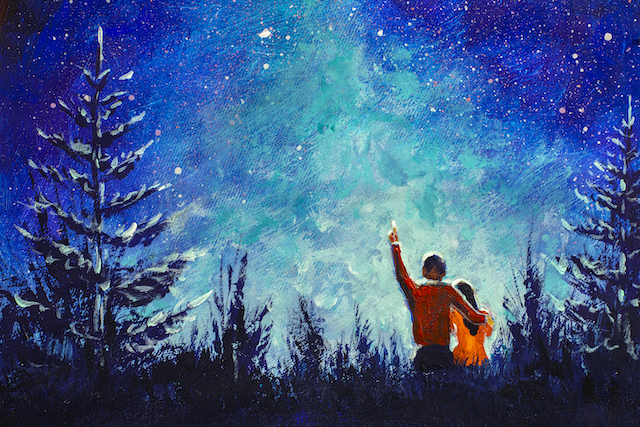
“Love is our true destiny. We do not find the meaning of life by ourselves alone—we find it with another.” ~Thomas Merton
Seth: When Aria and I decided to devote a year to encouraging one another in our mindfulness practice, we couldn’t have known what those twelve months had in store.
I had always enjoyed good health—“taken for granted good health” is more accurate—and suddenly I was faced with major health challenges of unknown origin. Countless trips to doctors and other professionals provided no explanation for my chronically low energy, nightly insomnia, digestive issues, vocal problems, and eventually a deep depression.
In happier times two years earlier, I had attended Aria’s wedding in Northumberland, England. It was an incredible weekend—misty morning walks in a labyrinth, pounding rain on the roof of the old stone church during the exchange of vows, shared meals at a long wooden table in the long afternoon light. We both felt that our hearts were so open, and it was easy to focus our attention on what we truly cared about.
The day after the ceremony we marveled together at the deep sense of connection we experienced throughout the weekend. It wasn’t entirely surprising, of course, given the circumstances and the explicit focus on love. But if it was possible then, why couldn’t we nurture that quality of presence and open-heartedness in our day-to-day lives?
That shared question led us to our year-long collaboration in finding the sacred in everyday life. For a full calendar year we wrote to each other every day, urging one another to connect with what we held most dear. We took turns—Aria would send me a mindfulness practice one day, and I would send him one the next.
Aria: During the year I had a surreal realization with profound clarity. Everything that mattered—everything that was truly important—was relational: my wife, our families, our dog, and our friends. These were the foundation stones of my happiness. Everything else—work, money, reputation— seemed like a game. They were fun, but they weren’t issues of life or death.
Seth’s messages reminded me that sometimes we lose ourselves in the game. We become so immersed in the narrative we’re spinning that we forget it’s just a story. It’s like living in the Matrix. The game seems like it’s more important than everything else, as though it’s the center of our universe.
Then, now and again we gain that beautiful, tender, precious thing called perspective and let out a sigh of relief. We breathe softly and deeply, connecting on a deeper level to ourselves and simultaneously to something even greater.
At times, this perspective comes at a cost. The loss of a loved one or the pain of a reality that we don’t want to accept may force it upon us.
The year that we wrote to one another was challenging in a myriad of ways, from working with children with terminal cancer, to nearby London terrorist attacks, to unexpected deaths. However, there were also highlights, one of which for me was running my first ultra-marathon in South Africa. Wherever we were in the world, and whatever was happening in our lives, waking up to a mindful message from Seth was deeply grounding and uplifting.
Seth: Aria’s messages were a constant lifeline during the difficulties of that year, providing an opportunity at least daily to check my automatic reactions to difficulties and come back to center.
I remember in particular walking home one evening after work, wiped out from the day and feeling like I had nothing to give my wife and kids once I got home. I dreaded subjecting my family to my low mood and to the person I’d become.
As I struggled to walk up a gentle hill in the falling darkness, I remembered Aria’s encouragement that day—to focus on the qualities we want to embody in our interactions with others. I settled on love, joy, and strength, and realized the evening didn’t have to be a complete loss. It ended up being a positive time with the people I love, instead of the sad mess I’d feared.
Aria: There was something particularly comforting about receiving a thoughtful note from someone who cares deeply about you. Knowing that another person is holding you in mind is profoundly powerful, especially when you’re struggling.
Sometimes it’s difficult to feel the sunlight. We can see the sun shining, but the rays don’t seem to touch us. We know intellectually that we have much to be grateful for in life, but we can’t feel it.
During these times, Seth helped me to appreciate that life is to be experienced rather than solved. There is no one way we should be feeling. Our moods ebb and flow, sometimes quickly, other times more slowly. All things change. Acknowledging this gave me the freedom to still act, just without expecting my behavior to change how I felt.
We can all still take steps, but without tying our happiness to a “successful outcome.” We can return to the basic pillars of wellbeing: wholesome food, quality sleep, meditation, checking in with the present moment, and connecting to the people we love. We can nourish ourselves and let go of any expectations. We can remind ourselves that what will be will be, and at the same time, all will be well.
Over the course of the twelve months writing to one another, our relationship grew and deepened. Knowing that a friend was depending on me was a big responsibility, but it also provided meaning in my own life.
It wasn’t always easy: in the beginning I spent hours crafting the next email to Seth. At the end of a long or tough day, sitting down to write may have been one of the last things that my mind wanted to do. However, a little like doing exercise, I always felt better afterward. Ironically, serving someone else nourished my own mind and body. We gain something by giving. Writing to Seth connected me to what I value most: compassion, authenticity, and love.
Seth: If you’ve craved greater connection to your core self and the people and things you care about, there are many possible avenues. Common approaches include prayer, reading sacred texts or a daily devotional book, and mindfulness practices like yoga or sitting meditation.
Whatever approach you choose, consider partnering with someone you love for some period of time: a month, six months, a year, even longer. It could be a best friend, a spouse or partner, a sibling—someone you trust implicitly.
Talk with your loved one about what each of you wants to focus on during the process. We had decided in advance on themes like presence, simplicity, and service. How would you like the other person to encourage you? What kinds of reminders will be most helpful to them?
Decide together on a format for encouraging one another in your mindfulness practice. For example, you might send each other quotes that you find meaningful, reflections for the day, an invitation to apply mindful awareness in a specific area, or whatever you like. You could also consider doing sitting meditation together—a so-called “medidate.”
Whatever you choose, allow it to nourish not only your individual and spiritual practice, but the quality of your connection to your loved one. Whatever joys and struggles you experience together, your relationship will never be the same.
About Seth J. Gillihan and Aria Campbell-Danesh
Seth J. Gillihan, PhD, is a clinical psychologist in private practice. He is the author of The CBT Deck and co-author of A Mindful Year, and blogs for Psychology Today and WebMD. Dr. Gillihan also hosts the weekly Think Act Be podcast, featuring conversations about living more fully. Find him online at his website and receive his free guide, “10 Ways to Manage Stress and Anxiety Every Day” when you sign up for his newsletter.
Dr. Aria Campbell-Danesh is a doctor in clinical psychology and expert in the fields of behavior change and long-term health (dr-aria.com). A mindfulness specialist and creator of the F.I.T. Method, he works internationally with clients on their mindset, exercise, and nutrition. He is regularly featured in popular publications such as Men’s Health and Marie Claire. Dr. Aria is Associate Fellow with the British Psychological Society and Senior Associate Member of the Royal Society of Medicine.


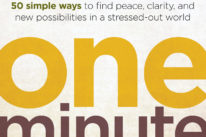
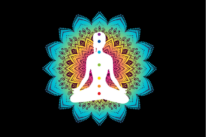
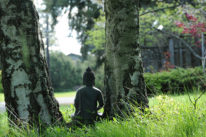


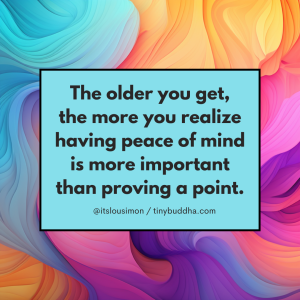





 Though I run this site, it is not mine. It's ours. It's not about me. It's about us. Your stories and your wisdom are just as meaningful as mine.
Though I run this site, it is not mine. It's ours. It's not about me. It's about us. Your stories and your wisdom are just as meaningful as mine. 